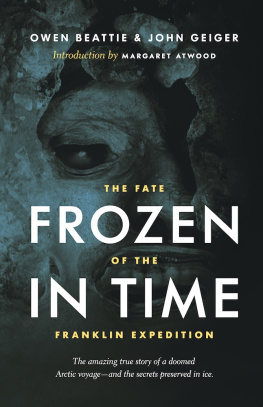First published in Great Britain in 2019 by
Pen and Sword History
An imprint of
Pen & Sword Books Ltd
Yorkshire - Philadelphia
Copyright Peter Baxter, 2019
Hardback ISBN: 9781526727374
Paperback ISBN: 9781526765864
eISBN: 9781526727381
Mobi ISBN: 9781526727398
The right of Peter Baxter to be identified as Author of this work has been asserted by him in accordance with the Copyright, Designs and Patents Act 1988.
A CIP catalogue record for this book is available from the British Library.
All rights reserved. No part of this book may be reproduced or transmitted in any form or by any means, electronic or mechanical including photocopying, recording or by any information storage and retrieval system, without permission from the Publisher in writing.
Pen & Sword Books Ltd incorporates the Imprints of Pen & Sword Books Archaeology, Atlas, Aviation, Battleground, Discovery, Family History, History, Maritime, Military, Naval, Politics, Railways, Select, Transport, True Crime, Fiction, Frontline Books, Leo Cooper, Praetorian Press, Seaforth Publishing, Wharncliffe and White Owl.
For a complete list of Pen & Sword titles please contact
PEN & SWORD BOOKS LIMITED
47 Church Street, Barnsley, South Yorkshire, S70 2AS, England
E-mail:
Website: www.pen-and-sword.co.uk
or
PEN AND SWORD BOOKS
1950 Lawrence Rd, Havertown, PA 19083,
USA E-mail:
Website: www.penandswordbooks.com
Chapter 1
I t was the winter of 1827, and the dining room of No. 21 Bedford Place was filled with men, and one woman. The occasion was a dinner party hosted by Captain John Franklin, to announce and celebrate his engagement to Jane Griffin. The news was hardly news, since The Times of London had already noted the pending union, with some speculation from here and there on the subject of age, wealth and suitability.
Jane would never have willingly intruded on the celebrations that evening, but so familiar was she in the company of these men that when the summons began, and all of that banging on the table and raucous cheering, she felt obliged to make an entrance. Acknowledging a loud cheer as she entered the room she seated herself in a chair made available beside Captain Franklin. One voice then began, For Shes a Jolly Good Fellow, before others joined in. Soon they were all singing at the tops of their voices. From one or other she accepted a small glass of sweet sherry, which just touched her lips as she waited for the disorder to subside.
The men were well victualled, flushed and sentimental, cementing old friendships and sharing long memories. Besides her father, they were all army or navy men, all in their late thirties or early forties, and all of rank and accomplishment. The room in which they were assembled was lit softly by candelabras, its decorations all in the modern, Regency style. A significant amount of money had clearly been invested in the interior of this home, which stood mid-way up a row of identical Georgian townhouses in the respectable new arrondissement of Bloomsbury.
Occupying most of the second floor, the dining room, high ceilinged and spacious, was dominated by a row of large windows, draped now with curtains. There might perhaps have been a little too much gold brocade, and a few too many gilded frames, and the walls, clad in dark velvet, might have seemed extravagant, but it was all in the spirit of the times. Napoleon gave the fashionable British bourgeoisie their interest in the Orient, and so the floors were clad in Turkish rugs and the dining table stood on smooth, gilded columns. In a deep place, a fire blazed, guarded on either side by carved Moorish figures clad in black lacquer and gold. The effect of it all, to one with refined tastes, might perhaps have been wealth over breeding, but there were none that evening who would have cared one way or another.
On Janes left sat Captain Edward Sabine, a handsome, 35-year-old soldier, marvellously suave, elegant and witty, while to her right was seated the more reserved figure of Captain John Franklin. At the head of the table, liverish over his brandy and milk, sat John Griffin, the father of the bride and head of the household. He was a slight, ascetic man, ageing poorly, mildly valetudinarian, but satisfied on this particular evening that his favourite daughter was at last poised upon respectability. For more than a few years he had fretted over her uncertain future, but he could now rest content that, finally, a man of adequate credentials and respectable rank had accepted responsibility for her.
That evening Jane was flushed and merry and in excellent humour. A sip or two of brandy had passed her lips already, and she was apt for once to abandon herself to the pleasures of the moment. Although hardly beautiful, she was blessed with those rare Huguenot gifts of black hair and pale skin, with lightly blooded cheeks and lips full and red. Her eyes were sloe, dark and hooded, and lined in maturity in a manner quite becoming. Her dress was plain but expensive, and around her neck hung a string of pearls of evident quality. Her shoulders were draped with a thin silk shawl, one shoulder of which she had allowed to fall, and then to incline ever so slightly towards John Franklin.
The proposed marriage of John Franklin to Jane Griffin was regarded in the closed social circles of London as rather a curiosity, attracting considerable speculation and comment. Jane was, at the very least, a woman who knew her own mind, and she certainly would not have entered into any arrangement that did not suit her. At 35, however, there was more than a little gossip abroad that she had, in desperation, seized upon the first man to propose. A worse fate than an unhappy marriage was surely no marriage at all, and for a woman to reach her thirties unwed could never be regarded as a good omen.

















